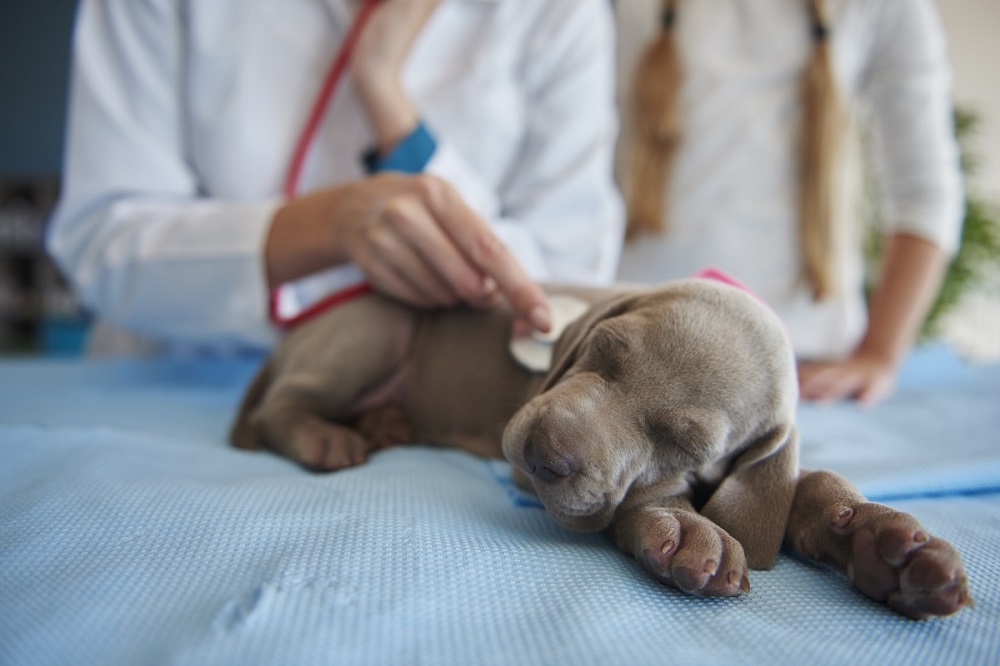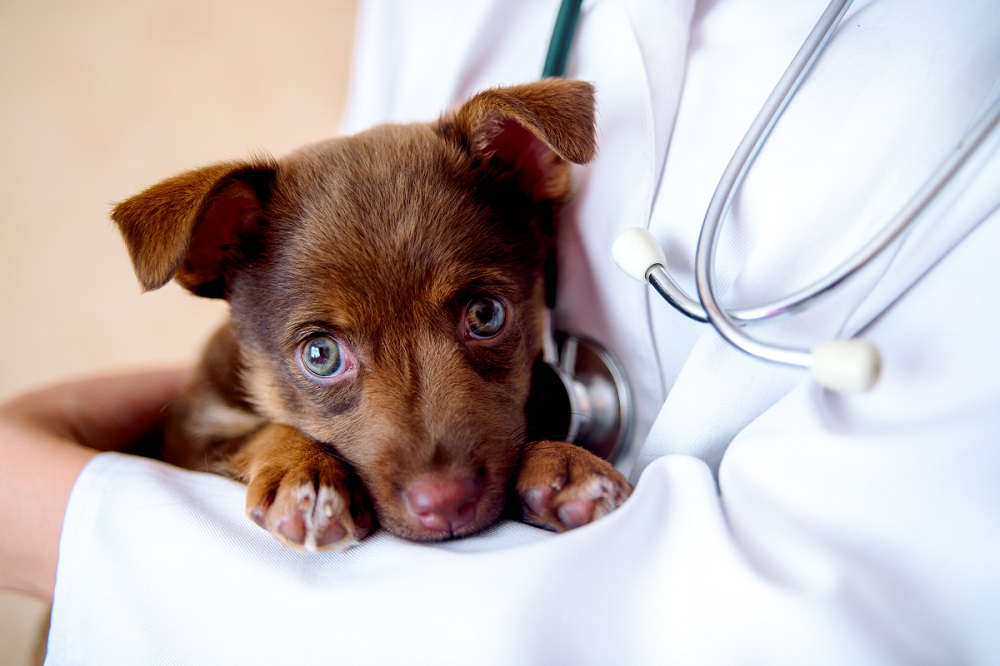Everything about Puppy Wellness Checkup
Most puppy parents are so excited about their new furry friend that they don't realize when it's time to take their pup to its first trip to the vet. Most vets would like to see your puppy around 6 to 8 weeks of age, although you can push their first visit to 10 weeks of age if absolutely necessary. However, it's important to realize that the longer you delay your puppy's first visit, the more your pup is at risk. This is especially crucial after adopting a puppy, as their initial veterinary checkup is essential to ensure they are healthy and to start their vaccination schedule on time.

Some puppies are more skittish than others when it comes to visiting new places, especially a place where other pets and dogs are present. Before you take your pup to their appointment at an animal hospital in Jacksonville, try to keep your puppy calm and take him on a walk before the appointment so that he has some time to exercise and get fresh air. Stick to your usual routine on your puppy's first appointment. One new experience provides plenty of excitement for your fur baby; you don't want to overwhelm your puppy by doing too many activities on the day of their first animal hospital visit.
What should you expect to happen at your first meeting with the vet? The following list will prepare you for your pup's first visit and help you keep your pet calm and cooperative. The veterinary doctor and assistant will:
- Take your puppy's temperature rectally
- Weigh your pup
- Listen to their heart and lungs
- Check their eyes, ears, nose, feet, and genitals
- Examine your pup's skin and coat
- Look inside your puppy's mouth and examine the teeth. Baby teeth will have come in, and he may be teething. The gums are also examined for pink, healthy tissue.
- Trim your puppy's toenails if they are too long
- Feel your puppy's abdomen and lymph nodes
- Check your pet's feces for worms. You should bring a sample of your puppy's stool to the first visit. Your vet's office can provide guidance if you have questions.
- Talk to you about spaying and neutering
- Explain any medications if your vet prescribes any
Your puppy's vet will also discuss the following important health issues with you:
Vaccinations
Having your puppy properly vaccinated is critical to ensure a long and healthy life for your pet. Your vet will send you a reminder when your puppy is due for vaccines. Most vets offer such a reminder service but ask the receptionist if they send reminders during your first visit. The timing of each visit depends on which vaccinations your pet needs. Some of the most common vaccines for puppies include distemper, leptospirosis, adenovirus, parvovirus, parainfluenza, and Bordetella (this is also known as kennel cough).
Microchipping Your Puppy
As a puppy owner, you might have questions about whether or not to microchip your pet. A microchip is a radio-frequency identification transponder that carries a unique identification number. This chip is tiny - about the size of a small piece of rice, and it is injected under the skin between your dog's shoulder blades. The microchipping process is done right in your vet's office and is no more invasive than giving a vaccine to your pet.
You might wonder why some animal hospitals recommend microchipping. Consider what would happen if your puppy gets lost. If your pet runs away or becomes lost, he will be taken to a veterinary clinic or animal shelter. Your dog can be scanned for a microchip to find its unique ID number. This ID number is called into a pet recovery service, and you will be contacted via the number you provided on the paperwork when your pet received a microchip.
Your puppy can have a microchip implanted by a veterinarian - the price range is $45 to 55, which is a one-time fee. If you adopted your puppy from a shelter, your pet might already have a microchip. Look at your pet adoption paperwork or bring your pet into the vet's office so that they can be scanned to reveal their microchip ID number.
Parasite Control
Your puppy's vet visit should include an exam for fleas and ticks. These tiny creatures like warm temperatures and humidity. Fleas are passed easily from animal to animal and may even travel into your home on your clothing.
Fleas are parasites, and they survive by getting their nutrition from the blood of their host. They can jump on to dogs where they will burrow and feed. Flea saliva contains a toxin that can be very irritating to most animals, causing them to scratch all day long. Some puppies can develop an allergic reaction to flea saliva, called flea allergy dermatitis. If you are concerned that your pet has fleas, talk to your vet and find out how to best protect your puppy.
Ticks bites are serious and can make your puppy very sick. Ticks can transmit Lyme disease, tick paralysis, Rocky Mountain spotted fever, and other diseases. The ticks found on dogs and puppies need to be removed by a vet and then carefully monitored for any signs of infection.
While many puppies can have worms and not show obvious signs of infection, the main symptoms to watch for include coughing, vomiting, diarrhea, and scooting of the hindquarters. It's very important to understand that worms in dogs can cause severe medical issues and health conditions if left untreated. Your vet will talk to you about heartworm medication and prevention tips.

Emergency Care
You'll also want to establish your puppy at an emergency animal hospital in Jacksonville in case they are sick and needs urgent care. What would you do if it's after hours, and you're not sure how to take care of your pet's health needs? That's why taking your pup to an emergency animal hospital is essential - especially if their health is at stake.
Taking Care of Your Puppy's Health for Life
If you're concerned about the cost of veterinary services, consider the value of buying pet insurance for your pup. You can also talk to the office manager at your veterinary clinic, as some vets offer payment plans and other financial options to help you keep your puppy healthy. You can also finance the cost of pet care with a personal credit card or loan.
It's normal to have questions about your puppy's health. That's why it's important to ask questions about house training your puppy, their diet, and any other health concerns that you might have.
Having a puppy is one of the most rewarding experiences you will ever enjoy, but it is an experience that comes with lots of responsibility - financial and otherwise. That's why it is so important to find a reputable animal hospital and establish a good working relationship with the staff early in your puppy's life. If you take your puppy to the right animal hospital, they will grow to be healthy and secure with the best care and attention.
Serving Jacksonville, Orlando, Nocatee, St. Johns, St. Augustine, Ponte Vedra and more.


